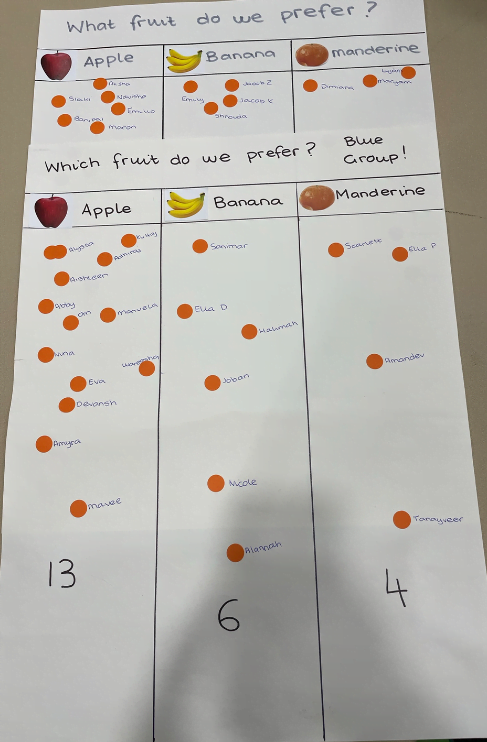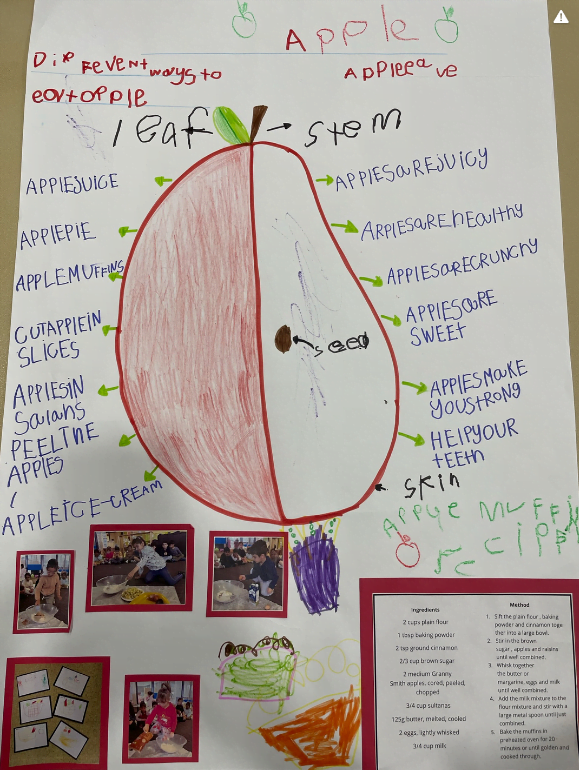More apples and less chocolate: A healthy eating campaign for children by children in the City of Hume
A Healthy Eating Campaign for Children by Children with Rachel Flottman from Ethical InteractionsFolk from a kindergarten service in the City of Hume engaged me to support children’s resilience and wellbeing earlier this year. In Term 3, children were becoming less and less interested in fruit, and more and more interested in chocolate. We were faced with a dilemma: honouring families’ knowledge of what their children would eat, and our knowledge of the importance of offering children a healthy, balanced diet.
We had been looking at ways we could view children as active citizens, with expertise and unique experience of childhood in this particular social, cultural, environmental, historic and political context all year. We knew that when children – anyone really – has their agency respected, they are more likely to be flexible and manage adversity better: be resilient.
We decided to use our new perspective of children as agentic and having unique expertise, plus our capacities in co-design to invite children to create a marketing campaign that draws on children’s unique perspectives and expertise to encourage each other to eat more fruit.
We knew that children knew all the reasons adults told them they should eat fruit. This is drilled into children from very young. But these messages weren’t resonating. They weren’t getting traction. They weren’t winning hearts and minds. So we handed to pen (and the power) over to our four and five year olds and asked them to convince other children to eat fruit. We led a project with our children, informed by principles of co-design, to create a healthy eating campaign that would resonate.
We started with identifying the children’s preferred fruit.
We made sure this was a truly democratic process: we created informed citizens by offering a range of fruit for them to try; and we were truly open to their perspectives by not having a preference (or say) on what fruit they chose to campaign about. The clear answer was apples.
We then empowered our citizens. Inviting children to write – in their own words – why children should eat apples; and how apples can be prepared in a way that is delicious for young palates.
The result was a series of posters designed, developed and prepared by children for children around the kindergarten service. And… to our delight: many more apples in lunch boxes and a lot less chocolate.
What a fabulous story of the power of using folk with lived experience to solve problems for themselves!
Follow me on Instagram @ethical_interactions to see more of my co-design projects with children in the early years across Victoria and Queensland. Or check out my website www.ethicalinteractions.com to see how we can support your organisation involve children’s perspectives in decision making.
About Rachel FlottmanRachel has over 15 years’ experience working in early childhood policy, research and practice. She works in ways that are sensitive and responsive to young children’s emotional and intellectual capacities. She is particularly interested in using methods that gather children’s perspectives in ethical ways to inform decisions about matters that affect them. She views children as powerful and agentic and as holding equal value to others in the community. Central to her work is the principle that children are simultaneously capable, and vulnerable. She is continually engaged in critical reflection about the most ethical ways to balance children’s rights with their needs to be protected. Rachel enjoys working with teachers and educators as an active and equal partner co-constructing approaches that work for local contexts. She brings deep knowledge of theory and research and collaborated with teams’ deep knowledge of their community and local context to create excellent pedagogy, programs and environments. She worked closely on the development of the Early Years Learning Framework and led the development of the Victorian Early Years Learning and Development Framework (2009). Later, she supported the design of School Readiness Funding in Victoria.




